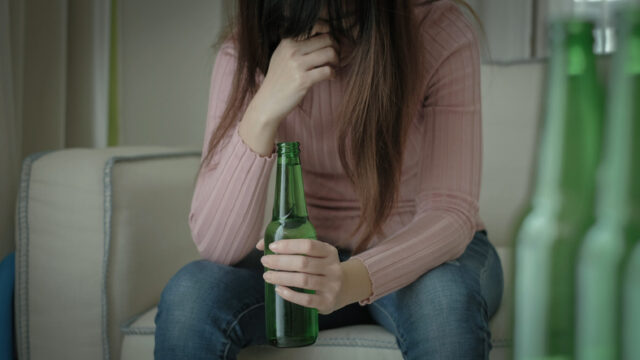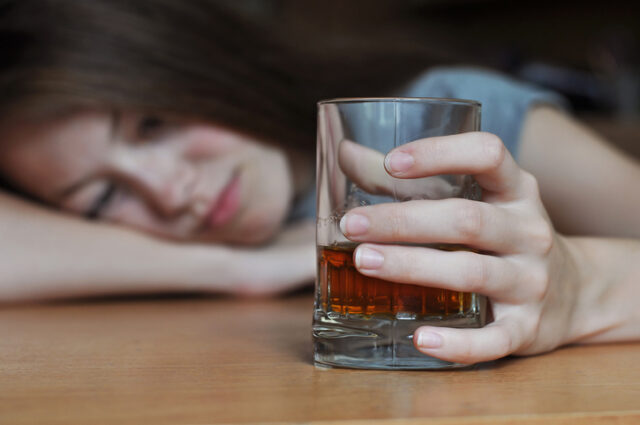Alcoholism doesn’t always look like the extreme images we see in movies or on TV.

Sometimes, the signs of drinking becoming problematic are subtle, and they sneak into everyday life in ways you might not recognise right away. If you or someone you care about is questioning their relationship with alcohol, these red flags can help you spot potential problems before they spiral out of control.
1. You use alcohol to cope with stress.

If you find yourself reaching for a drink every time you’re stressed, anxious, or overwhelmed, it could be a sign of alcohol abuse. Using alcohol as a crutch to manage emotions might seem harmless initially, but over time, it can become a dependency. Finding other ways to cope is key to maintaining a healthy balance.
2. Drinking more than you planned to.

Maybe you set out to have just one drink, but it turns into three or four. Consistently drinking more than you intended, even when you know it might have consequences, can indicate a loss of control. This pattern can slowly develop into a bigger problem if left unchecked.
3. Your tolerance is increasing.

If it takes more alcohol to feel the same buzz you used to get from just one or two drinks, your body is building a tolerance. That means your system is adapting to higher amounts of alcohol, which can be a warning sign of dependence. Increased tolerance often leads to drinking more than is safe.
4. You hide your drinking from other people.

Feeling the need to conceal how much you drink or sneaking drinks when no one is looking is a major red flag. If you’re hiding bottles, drinking before events, or lying about your consumption, it might indicate that deep down, you know your drinking is problematic.
5. You experience frequent hangovers.

Everyone gets a hangover now and then, but if they’re happening more often, it could be a sign of excessive drinking. Regular hangovers can disrupt your daily life, affecting work, relationships, and your overall well-being. Ignoring these physical warnings can lead to more serious health issues.
6. Alcohol is affecting your relationships.
 Source: Unsplash
Source: Unsplash If friends or family have expressed concern about your drinking, or you’ve had arguments because of it, that’s a sign worth paying attention to. Alcohol abuse can strain relationships, causing tension, broken trust, or isolation. These issues often worsen if the drinking continues.
7. You drink alone regularly.

While an occasional solo drink is normal, regularly drinking alone—especially to escape, numb feelings, or out of habit—can be concerning. Drinking alone can be a sign that alcohol is becoming a more significant part of your life, especially if it’s tied to feelings of loneliness or sadness.
8. You feel guilty or ashamed about your drinking.

Guilt and shame around drinking are signs that something doesn’t feel right. If you regret your actions while drinking, feel embarrassed, or constantly promise yourself you’ll drink less but don’t follow through, it might be time to reassess your relationship with alcohol.
9. You’ve had blackouts or memory lapses.

Waking up and realising you can’t remember parts of the night is a red flag. Blackouts happen when alcohol affects your brain’s ability to form memories. This isn’t just a sign of drinking too much—it’s dangerous and can lead to risky situations or harm you can’t even recall.
10. Your hobbies and interests take a back seat.

If you’re skipping activities you used to enjoy because you’re drinking or recovering from drinking, that’s a warning sign. When alcohol starts to replace hobbies, exercise, or social events, it’s often a sign that it’s taking priority over healthy parts of your life.
11. You experience withdrawal symptoms.

Feeling shaky, anxious, nauseous, or irritable when you haven’t had a drink could be a sign of physical dependence. Withdrawal symptoms indicate that your body has become reliant on alcohol. Ignoring these signs can lead to more serious health problems over time.
12. You justify or downplay your drinking.

Do you find yourself saying, “It’s just a few drinks” or “Everyone drinks like this”? Justifying or minimising your drinking can be a way to avoid confronting the issue. If you’re defensive when someone brings it up, it might be worth examining why you feel the need to downplay it.
13. Your drinking impacts your responsibilities.

Missing work, skipping family obligations, or neglecting personal goals because of drinking is a clear red flag. When alcohol starts to interfere with daily responsibilities, it’s no longer just a casual habit. Over time, this pattern can lead to bigger problems in your professional and personal life.




